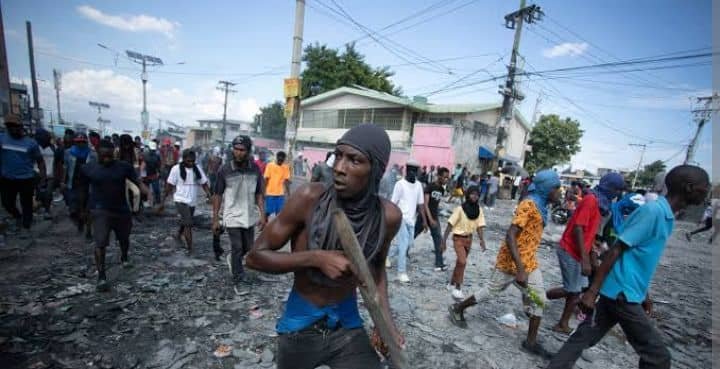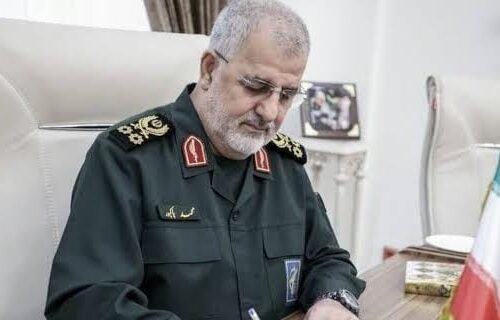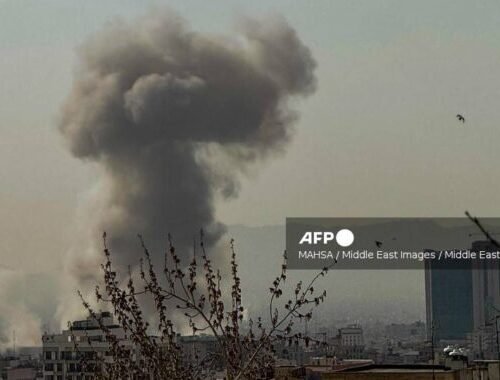Energy, Ports, and Influence: Why Syria Trumps Haiti!
The concept of diplomatic pragmatism is indeed intriguing, especially when we consider the recent meeting between US diplomats and Syrian rebels. This move reflects a pragmatic approach to addressing the complex Syrian conflict, acknowledging the role of various factions in shaping the country’s future ¹.
On the other hand, the situation in Haiti presents a stark contrast. Despite facing numerous challenges, including political instability, economic struggles, and natural disasters, Haiti seems to have been abandoned by the international community. The lack of significant diplomatic efforts or substantial aid packages has contributed to the perception of neglect.
Several factors might contribute to this disparity in attention. One reason could be the differing geopolitical priorities of major world powers. Syria’s strategic location and the involvement of various international actors have kept it in the spotlight. In contrast, Haiti’s location in the Caribbean and its relatively smaller global influence might have relegated it to the periphery of international attention.
Another factor could be the complexity of Haiti’s problems, which might make it harder for the international community to develop effective solutions. The country’s deep-seated structural issues, including poverty, corruption, and lack of infrastructure, require sustained commitment and investment.
Ultimately, the apparent abandonment of Haiti highlights the need for a more nuanced and equitable approach to international diplomacy. By recognizing the inherent value and dignity of all nations and peoples, the global community can work towards a more just and compassionate world.
It seems to me, that the international community has entirely abandoned Haiti, because of its numerous challenges. Though several countries and organizations have demonstrated interest in supporting Haiti’s development and recovery. The United States, Canada, and the European Union have been notable partners, providing significant humanitarian aid and support for development projects.
The United Nations has a substantial presence in Haiti, with various agencies working on development, humanitarian, and peacekeeping efforts. Additionally, countries like Venezuela and Cuba have provided economic and medical support, respectively. Venezuela’s oil subsidies and investments in infrastructure projects have been particularly noteworthy, while Cuba’s medical professionals and educational support have made a significant impact.
In recent years, China has also shown increasing interest in Haiti, providing investments in infrastructure projects such as roads and bridges. International organizations like the World Bank, the Inter-American Development Bank, and the International Monetary Fund have also provided financial support and technical assistance to Haiti. These investments and partnerships demonstrate the potential for Haiti’s growth and development.
Despite these efforts, Haiti’s challenges persist, and the country requires sustained commitment and investment from the international community. The complexity of Haiti’s problems, including poverty, corruption, and lack of infrastructure, demands a comprehensive and coordinated approach. By recognizing the inherent value and dignity of the Haitian people, the global community can work towards a more just and compassionate world.
Ultimately, Haiti’s recovery and development depend on a collaborative effort between the Haitian government, the international community, and civil society. By working together, we can help Haiti overcome its challenges and unlock its potential for growth, prosperity, and self-determination. It’s would be interesting to fleshen out why Haiti has suffered neglect for long in comparison to Syria.
Syria’s strategic location in the Middle East has long made it a critical player in regional politics. Bordering several countries, including Turkey, Iraq, Jordan, Lebanon, and Israel, Syria’s geography has historically influenced its role in the region. This location has also made Syria a crucial transit point for trade and energy resources, further solidifying its importance.
In contrast, Haiti’s location in the Caribbean has not afforded it the same level of strategic importance as Syria. While Haiti has a significant diaspora community and is a member of various regional organizations, its influence in the region is limited. Furthermore, Haiti’s lack of significant natural resources, including oil and gas, has hindered its ability to exert influence through energy exports.
Syria’s energy resources have long been a vital source of revenue and influence for the country. The discovery of significant oil and gas reserves in the 1970s and 1980s transformed Syria’s economy and enabled the country to play a more prominent role in regional politics. In contrast, Haiti’s energy sector is largely underdeveloped, and the country relies heavily on imported fuels.
The presence of strategic ports along Syria’s Mediterranean coast has also contributed to the country’s importance. The ports of Latakia and Tartus provide access to international trade routes and are critical for Syria’s economy. In contrast, Haiti’s ports, while important for the country’s trade, do not possess the same level of strategic significance as Syria’s.

In conclusion, Syria’s strategic location, energy resources, and strategic ports have all contributed to its importance in regional politics. In contrast, Haiti’s limited natural resources, lack of strategic ports, and peripheral location in the Caribbean have hindered its ability to exert influence in the region.
Dr Chukwuemeka Ifegwu Eke writes from the University of Abuja Nigeria







